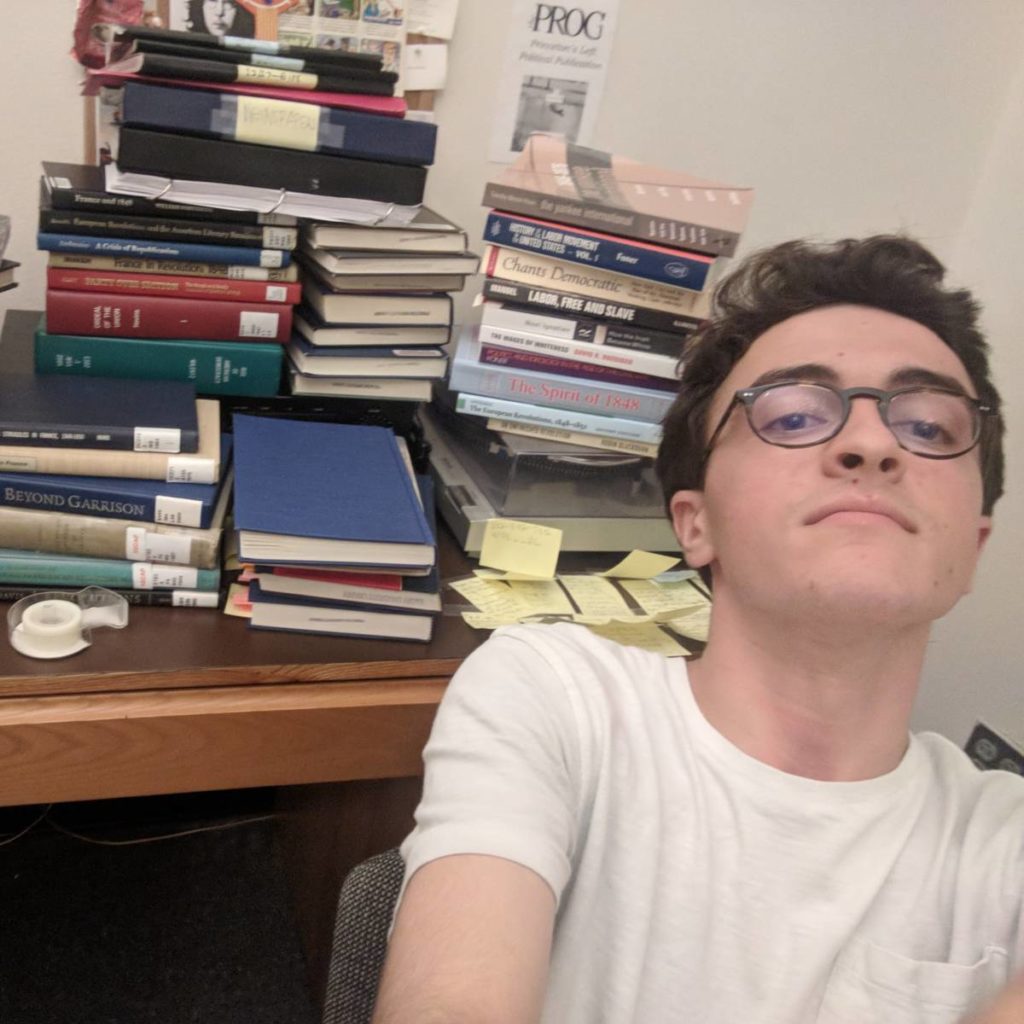The second time I met with my independent Junior Paper adviser this semester, I was nervous. I had decided following our first meeting that I wanted this JP to be the continuation of research I had, at that point, started nearly two years before (that project on the 1848 revolutions that keeps popping up in my posts), and I was apprehensive to present ideas that I felt might be stale; at the time, I struggled to think of ways to expand the project to something more mature than what I had begun as a first year student. Plus, I was feeling reluctant to be finishing up a project I had been working on for most of my college career.
My adviser and I discussed some of these concerns of mine, and right before I left, he smiled and said, “Alec, have fun with it.” He repeated this phrase at many of our weekly meetings, especially if I came feeling overwhelmed by often self-imposed worries. It was usually paired with a reassuring statement: “You know more than you think you know.” I knew more than I think I knew, and I was going to have fun.

Indeed, his direction to “have fun” with my research was some of the best academic advice I have received. It reminded me that as much difficult, time-consuming, and yes, even frustrating work my project involved, there was ultimately a reason I had stuck with it for so long: at the end of the day, it absolutely fascinated me. I found (and still find, as I now am finishing up writing) the work to be quite meaningful. So, why shouldn’t I have fun with it to reduce the burden?
Reminding me to “have fun” also reminded me to embrace the deep familiarity I had gained with the topic. I had so well come to know something which on the outside seemed so serious— symbolized by the growing stack of books on my desk and the hundreds of quiet hours spent in libraries— that I could begin to make light of it. I could cultivate personal relationships with the people I was studying, across time, and try to learn their personalities (Sydney Howard Gay: anxious, bitter, loyal. Charles Sumner: melodramatic, self-important, deeply principled). I could laugh at some of the ridiculousness of my materials (William Lloyd Garrison trying to sell everyone he wrote to on the trendy “water cure” he was trying; newspapers using all kinds of stretched metaphors relating to the mad dog epidemic in New York at the time). I admit this sounds incredibly nerdy. It no doubt is. But as I let myself have more fun, I found myself more and more excited to return to my work. In fact, it felt less like work.
More seriously (as oxymoronic as that may sound in a post about having fun), my professor’s advice helped me affirm which parts of the project I found the most attractive. If something was fun to research, it probably meant it was a topic I wanted to look into further.
This correlation, of course, is not at all limited to Junior Paper work. Any research that you find compelling, whatever the impetus behind it, can help guide you find more compelling work later on. For example, two final papers I wrote for Dean’s Date were inspired by the most “fun” previous topics I have worked on— in one case, based on themes from my JP work, in another, based on ideas I initially began to develop in a midterm paper this semester.
To be sure, I do not mean my injunction of funness to encourage a cavalier or unrigorous approach to research. Rather, the ideal that should be sought is a project whose main attraction can be found within the rigor itself.
And, I want to stress that this finding “fun” may not happen every time you conduct research. Sometimes it is ok for work to feel like work, and sometimes it may be better that way. Like all Princeton students, I know how hard it can be to balance school work with downtime, and I do not at all mean to encourage the barrier between the two to erode. However, this barrier may feel more scalable, and the switch between work and downtime may be less jarring, if the work is genuinely enjoyable.
So, go forth and research. The stakes are not as high as you think they are. Have fun. You know more than you think you know.
—Alec Israeli, Humanities Correspondent

